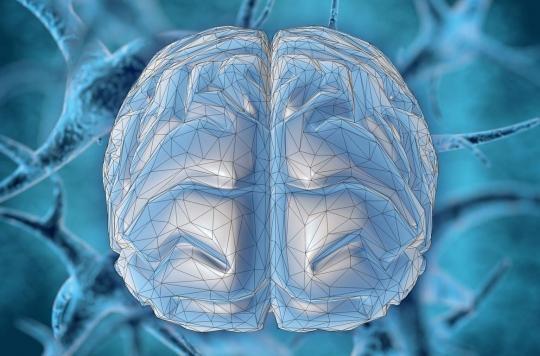It had already been proven that the new coronavirus could attack the nervous system. Scientists have named this phenomenon NeuroCovid and have summarized it in three distinct phases.

- The neurological disorders caused by Covid-19 would occur due to the cytokine storm triggered by the virus.
- If the cytokine storm is severe, the patient may suffer brain damage.
Decidedly, the malevolent powers of the new coronavirus seem to be expanding day by day. Besides the lung, heart and kidney damage that SARS-CoV-2 can cause, it had also previously been suggested that the virus could attack the nervous system. Today in the Journal of Alzheimer’s DiseaseAmerican scientists summarize this phenomenon, which they have decided to call NeuroCovid.
The neurological disorders caused by Covid-19 would occur due to the cytokine storm, which the media have already talked about a lot, because this runaway of the immune system is the cause of many deaths. Thus, this “storm” can cause inflammation of the nervous system to the point of causing encephalopathy (cerebral inflammation). Especially since neurons are rich in ACE2, the receptor through which SARS-CoV-2 attaches to cells.
If the virus can stay inside certain neurons without showing acute toxicity, it can cause long-term dysfunction. Thus, abnormal protein production in patients who have suffered from a severe form of Covid-19 “can therefore theoretically lead to brain degeneration decades later”write the researchers.
three stages
To popularize their remarks, the latter describe the phenomenon of NeuroCovid in three stages.
- Stage 1 Loss of taste and smell: the attack of the virus is limited to the ACE2 receptors of nasal and taste epithelial cells. The cytokine storm remains low and controlled and the patient heals on his own.
- Stage 2 Cytokine storm: SARS-CoV-2 drives a strong immune response with high levels of cytokines. This leads to the formation of blood clots which will become lodged in the vessels. Some patients may then have a cerebrovascular accident (CVA) or suffer from an arterial or venous occlusion (thrombosis).
- Stage 3 Severe cytokine storm: the immune runaway damages the filter that protects the brain, the blood-brain barrier. This leads to the infiltration of inflammatory factors and other blood contents, including virus particles into the brain milieu. The patient suffers from brain damage. The result is delirium, encephalopathy or seizures.
Depression, sleep disorders, attention deficit….
Thereby, “patients with Covid-19 can experience a wide range of neurological manifestations which may be due to central and peripheral nervous system damage via cytokine storm, blood clots, direct damage by SARS-CoV-2, and /or a molecular imitation”, note the researchers. From “long-term neuropsychiatric consequences”, they fear in former Covid patients “cognitive decline, attention deficit (…) or Alzheimer’s disease in the future”. At the psychiatric level, a wave of patients suffering from post-traumatic stress disorder, anxiety, insomnia, psychosis could reveal themselves in “the years to come”, they warn.
In conclusion, as was the case during the SARS epidemic that hit Asia in 2002, or that of MERS, which circulated in the Middle East in 2012, “not all patients with Covid-19 infection who leave hospital will regain 100% of their basic emotional and neurocognitive functions”. It will therefore be necessary to follow the recovered patients of Covid-19 with great attention. “We need to add Covid-19 to the list of differential diagnoses for our patients in a neurology unit and remain mindful that patients should have a full and standard workup for their assessment and treatment. Neurologists should consider ordering blood tests to determine cytokine levels (…) as well as PCR and/or SARS-CoV-2 serology”, they conclude.
A phenomenon observed on several occasions around the world
Since the start of the Covid-19 epidemic, several studies have shown the impact of SARS-CoV-2 on the nervous system of patients, even after their recovery. On February 25, in a paper published in the Journal of Medical VirologyChinese researchers wrote: “DOverall, neuroinvasive propensity has been demonstrated as a common feature of Coronaviruses. Considering the high similarity between SARS-CoV and SARS-CoV-2, it is highly likely that SARS-CoV-2 also has similar potential. According to an epidemiological survey on Covid-19, the median time between the first symptom and dyspnea was 5 days, between admission to hospital and intensive care 7 days and 8 days. Previous studies reported that some patients infected with SARS-CoV-2 had neurological signs such as headache (about 8%), nausea and vomiting (1%). More recently, a study (…) involving 214 patients with Covid-19 also revealed that approximately 88% (78/88) of patients with the severe form had neurological manifestations, including acute cerebrovascular disease and impaired consciousness. Therefore, awareness of the possibility of neuroinvasion may be of critical importance for the prevention and treatment of SARS-CoV-2-induced respiratory failure.”
A Pakistani study published on March 13 in the newspaper Chemical Neuroscience then highlighted the fact that Covid-19 could lead to the loss of smell and taste to support this theory. Through research carried out on transgenic mice, modified to be susceptible to coronaviruses affecting humans, researchers have shown that SARS-CoV-1 or MERS-CoV can enter the brain, possibly through the olfactory nerve and then spread. rapidly in certain specific areas of the brain, such as the thalamus and the brainstem.
Finally, a French paper entitled Neurological features of severe SARS-CoV-2 infection published on April 15 in The New England Journal of Medicine, reports that 84% of the 48% patients in the Strasbourg intensive care unit sick with Covid had abnormalities on neurological examination. More worryingly, 33% of people who left this unit had residual symptoms such as lack of attention or difficulty making decisions or controlling their behavior.

.















